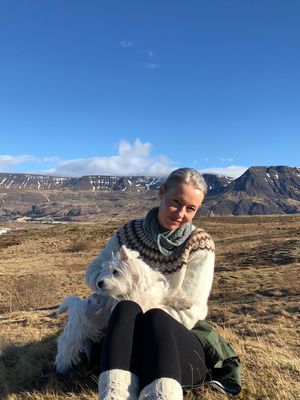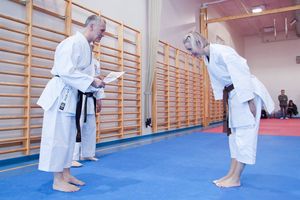Alma Ragnarsdottir
Head of International Office at the Iceland University of the Arts (IUA)
WHAT IS YOUR BACKGROUND?
Before starting my career as an IRC, I worked for many years in music stores in Iceland, mostly store managing as my organizational skills quickly drew me to that end. Music has always been one of my passion in life. I grew up in Kópavogur, the town where punk was born in Iceland. I have three sisters, and I am a daughter of a drummer who started his career at the time of the Beatles and who has played in various bands including pop/rock, folk and country music. These tuneful surroundings was an obvious stimulation in my childhood. Today, I live at the outskirts of the capital together with my husband, three daughters, mother-in-law, cats and a dog. My favorite past time hobbies are knitting, reading and gardening. I have a black belt in karate and I also enjoy swimming and walking in nature.
WHAT IS YOUR PATH TO THE CURRENT POSITION?
The IRC position was up at IUA, at the same time as record sales were in decline, so I decided to make a move. I started half-time and today we are three persons at the IO. I am most grateful to have found a career within a young institution and to have been able to develop international collaboration at the same time as the institution was expanding its role and curricula. To join an institution so recently founded, and to work with the instigators of arts higher education in Iceland, one was instantly drawn into a spirit of great energy and curiosity. An element that that I have tried to maintain in my job. My educational background in English Literature and Public Administration reflects my interest in people in general as well as the systems and societies in which we thrive as human beings.
WHAT IS YOUR PASSION IN YOUR JOB?
What drives me forward in my job is the possibility to seek out new challenges. I have been able to develop my own skills through participation in various working groups, networks and projects. The Nordic/Baltic collaboration under the umbrella of Nordplus, plays an essential part in that sense. This is where colleagues meet and share problems and solutions, debate and discover new things and best practices. I have been inspired by many people that I have met in these platforms, but also made good friends. The task of the IRC and internationalisation as such, is not just about mobility. More importantly, it fosters quality enhancement and is an important tool for development. Internationalisation is a never ending task in higher education. It is also hugely relevant and important in our societies today where political trends increasingly seem to favor exclusion rather than inclusion, and isolation more than globalization.

